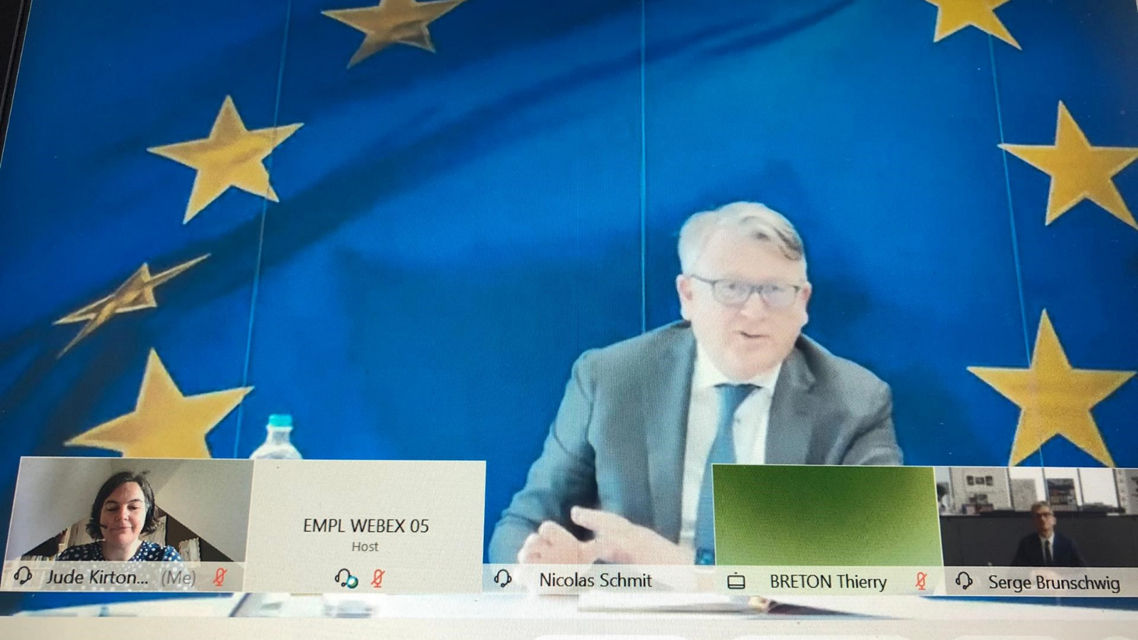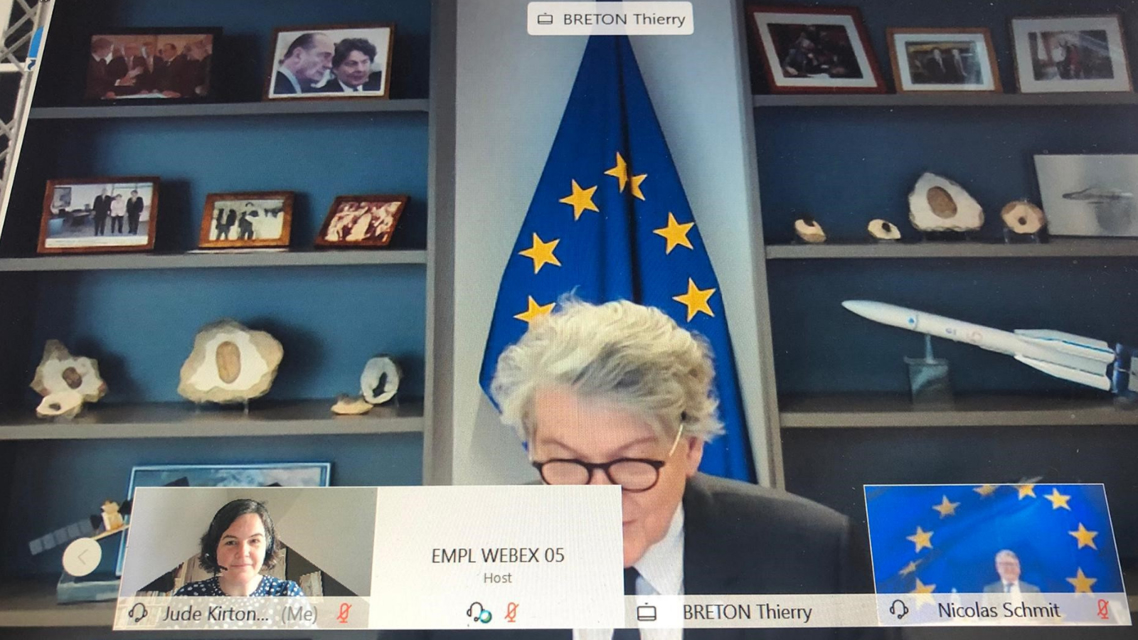Skills development is a central pillar of any successful industrial policy and crucial to a Just Transition. We want to see an ambitious EU textiles strategy that addresses the needs of the sector in a holistic manner.
A skills partnership was launched today for the European textile, clothing, leather and footwear (TCLF) sectors and the players operating along the value chain (from companies to academia, research, service providers and suppliers), the so-called ‘textile ecosystem’.
The skills partnership forms part of the new EU Pact for Skills and was set in motion today in a virtual High-Level Roundtable, chaired by EU Commissioners, Nicolas Schmit (employment) and Thierry Breton (industry). The launch event gave stakeholders (representing industry, regions, training providers and trade unions) the opportunity to discuss challenges facing the textile ecosystem regarding upskilling and reskilling of workers and to establish what support is needed for skills development at European level.
IndustriAll Europe affirmed its willingness to play a full role in the textile skills partnership and underlined the importance of skills development for this sector, which is undergoing profound structural change and has been hit hard by the COVID-19 pandemic. Before the pandemic, the TCLF industries, represented by thousands of companies, employed more than 1.8 million workers in Europe. The pandemic has especially impacted the retail segments of the sector and intensified existing structural changes – related to both decarbonisation and digitalisation across the economy.
Speaking at the launch event, Judith Kirton-Darling, industriAll Europe Deputy General Secretary, states:
“The TCLF industries are in urgent need of a robust EU industrial policy for the broader sector and a Just Transition for its workforce. Skills development is a central pillar of any successful industrial policy and crucial to a Just Transition. We want to see an ambitious EU textiles strategy that addresses the needs of the sector in a holistic manner.”
Judith Kirton-Darling further states:
”The TCLF sectors are very diverse. They range from sometimes glamourous and specialised high-tech, high-skill segments to under-valued workers in exploitative conditions. A skills agenda for Europe must address this reality.”
IndustriAll Europe further highlighted the need to ensure that EU action addresses the reality of different regions within Europe. Notably in South East Europe, there are hundreds of SMEs in the sector employing over 600,000 workers and there is further growth potential. Most of these companies are direct subsidiaries of multinational companies with western European origins. Attracting workers to the industry is vital, and skills play a part in this, but the shortage of workers due to poor working and wages conditions in the TCLF industries is another serious challenge for the sector.
Judith Kirton-Darling:
“We hope that EU action on skills in the textile industries will lead to a stronger, more resilient industry both environmentally and socially.”
Contact: Andrea Husen-Bradley (press and communication), Elspeth Hathaway (policy adviser)

